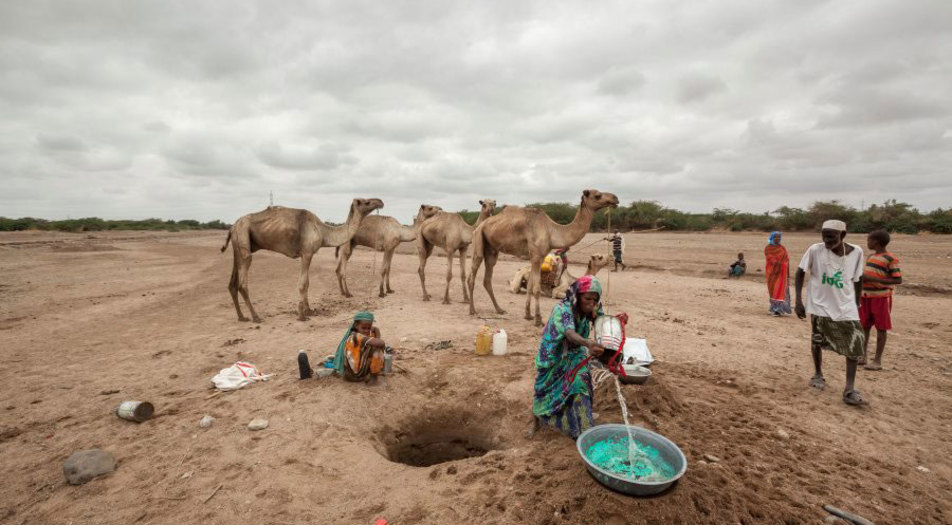Drought bites in Puntland regions as locals struggle to get drinking water


The drought situation in parts of Puntland has worsened with locals forced to travel distances to find drinking water, a government official has said.
Karkar regional governor Abdullahi Mohamed Barre told Goobjoog News the situation was getting dire by the day following failure of the rains for a long time.
“In some areas residents now don’t have even water to drink. We missed the autumn rain,” said Barre. The land is now bare because all trees have been cut and this has contributed to absence of rain.
Isku Shuban area in Bari region is among the places where severe drought is being reported as clarified by the commissioner of that district Mr. Ahmed Jama Adan.
Isku Shuban area in Bari region is also experiencing similar situation, the district commissioner Ahmed Jama Adan said. “We are experiencing severe water shortage and the situation is not getting any better.”
The only source of livelihood-livestock is also facing severe threat as most of them have now died or in very poor state.
Humanitarian Affairs and Disaster Management Agency (HADMA) of Puntland has said in a recent research half of the livestock was lost because of the ongoing drought.
READ ALSO: Somalia still facing risk of famine, UN humitarian coordinator warns
Abdullahi Abdirahman Ahmed, the director of HADMA stated that the drought has generally affected all of the regions in Puntland.
“The country has been witnessing this drought for long. Almost half of the livestock has been lost. Around 50,000 families have lost their livestock” said Ahmed.
UN’s Humanitarian Coordinator for Somalia, Peter de Clercq warned this week the northern regions of the country such as Sool and Sanag were still facing severe drought conditions calling for scaled up humanitarian response.
In areas like Sool and Sanaag, there are still massive needs and a strong possibility that famine-type conditions would develop, de Clercq said adding, ‘we are not out of the woods yet by any stretch of the imagination.”